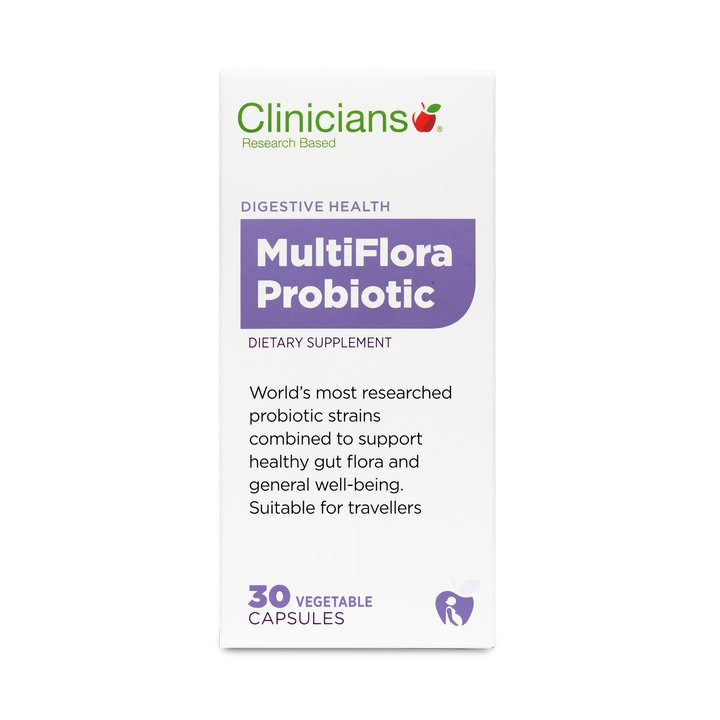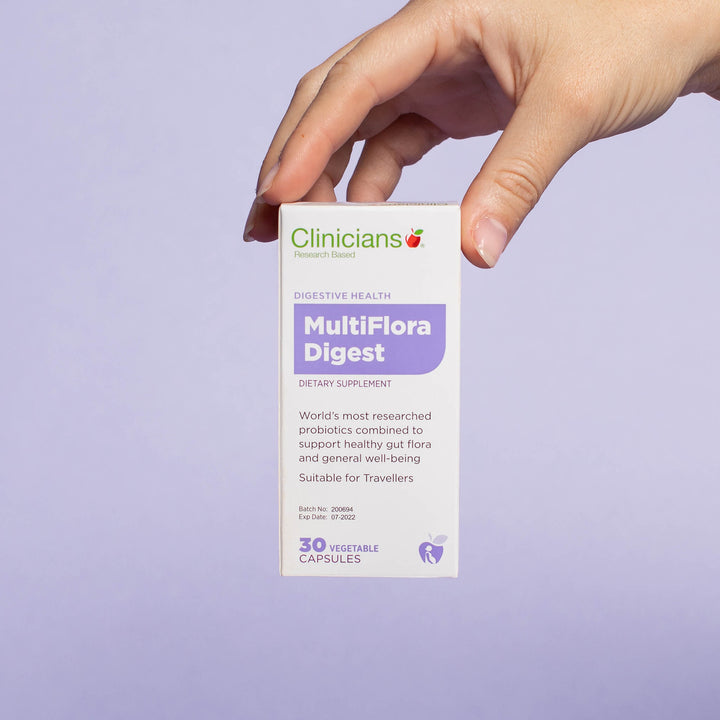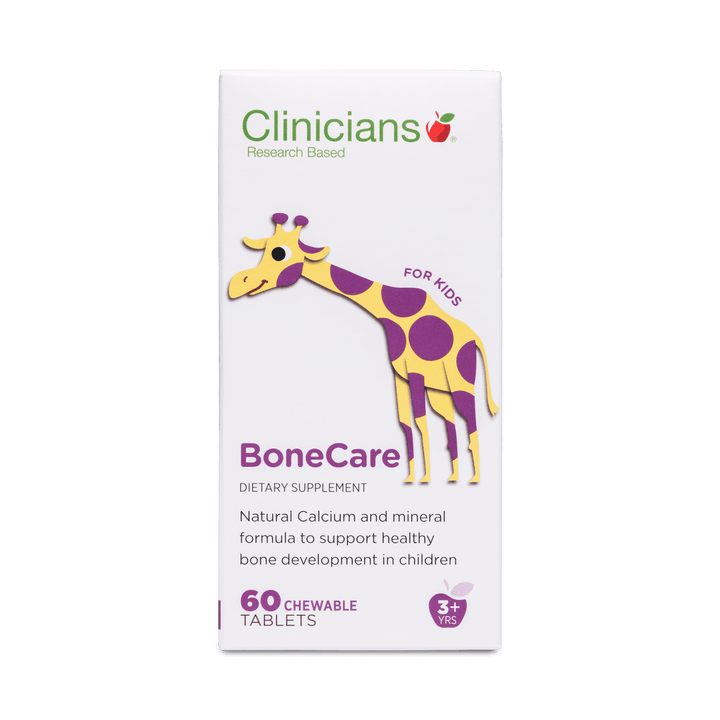Watering eyes, stuffy nose, sneezing – sounds like allergy season. Luckily, you've got a secret weapon inside you that can help reduce those symptoms, your gut.
Why do we have allergic reactions?
An allergic reaction starts with exposure to something that the body perceives as a threat. The immune system then creates antibodies in response to it.
For example, it might create an antibody to pollen even though for most people this is not considered something dangerous to the body. On subsequent exposure to pollen the antibodies activate and stimulate the release of a chemical called histamine, which causes swelling on the nasal passages, sneezing, watering eyes and excess mucous.
This is a defence mechanism designed to trap or expel the perceived attacker. As the release of histamine causes this reaction, you can see why antihistamine tablets are used to block its release and stop allergy symptoms.
How can a healthy gut make a difference?
Scientists believe allergies to be primarily hereditary, but more recently science has discovered our digestive system is key for immune health.
The walls of the digestive system are a barrier to protect us from harmful things that enter our digestive system. It refuses them entry into our bloodstream until the immune system has had time to check them out. We have our own border control. If any threats are found, our immune system starts a series of events to defend the digestive system.
However, if the walls of the digestive system get damaged this can allow particles of undigested foods or unfriendly bugs to enter the bloodstream and our immune system goes into overdrive.
It can then become oversensitive to normally harmless substances that enter the body, such as pollen. This can lead to inflammation throughout the body.
Many factors can affect the integrity of the digestive walls and the balance of healthy bacteria, such as:
- Poor diet
- Alcohol consumption
- Stress
- Medication (like antibiotics)
- A lack of digestive enzymes to break down certain foods, causing an intolerance to them (for example gluten and dairy)
Tips for a healthier gut
If we want to rebuild our gut for a balanced immune system and optimal digestive health there are a few areas we can easily improve.
Here are our top tips to help soothe allergic responses.
1. Balance gut bacterial balance
Beneficial bacteria helps to repair the walls of our digestive system and they interact without an immune system. To increase the population of these good bugs we need to feed them stuff that makes them flourish which is fibre. Foods like fresh fruit, vegetables, grains and legumes are all good fibre sources.
Also, some foods contain good bacteria that can help boost our populations. Increase foods like live yoghurt and fermented foods (kefir, sauerkraut, miso, tempeh etc.). If you need an extra boost try Probiotic supplements, especially if you have recently taken antibiotics.
2. Healthy gut walls
To repair the gut walls there are a number of nutrients that can help with this process. For example, Quercetin, which helps with inflammation and tightens the junctions between digestive wall cells. It also helps to tone the cells that release histamine, which slows down its release which makes it very helpful if you are already experiencing allergy symptoms. Lactoferrin, derived from milk encourages repair of the gut walls, but also helps to balance an overreactive immune system in the gut. This will eventually support overall immune system balance. Finally, there is Zinc Carnosine, a specific form of Zinc that is well researched in the area of stomach health. It can remain in the stomach longer than other forms of Zinc, which allows it to help tissue healing and its antimicrobial effects help deter less desirable bacteria.
Many herbs are also able to soothe and calm the digestive system such as turmeric, ginger, peppermint, chamomile and liquorice. These have traditionally been taken as teas, so are easily incorporated into your day.
To give the digestive system time to heal, try to cut back on or eliminate things that irritate it. For example, you may have noticed that after eating certain foods you may experience bloating, discomfort or bowel habits change. The most common culprits linked to allergies are gluten and dairy. If you have noticed a reaction to either of these foods eliminate either one from your diet and note if there are any positive changes. Also, other gut irritants to cut back on or avoid include caffeine, alcohol, fatty or processed foods, high sugar foods and pain killers.
3. Immune support
Balancing an overactive immune system is possible by improving digestive bacteria. Herbs such as echinacea and substances like lactoferrin can also help in this area.
Vitamin C and bioflavonoids (e.g. Quercetin, Rutin, Hesperidin) are natural antioxidants with several anti-histamine properties and can support healthy cell walls and immune strength.
Ideally, gut repair should be done before the start of the allergy season, although for some people allergies are an all year round experience and not just seasonal. In terms of when you would expect to notice a difference in digestive health, this is very much down to the individual. Some people may have been experiencing digestive issues for months or even years, so changes will take time. Also, it depends on the number of adjustments made to your diet and lifestyle. Hopefully, with some good work gut changes will become apparent quite quickly and as the digestive system comes into balance allergy symptoms should improve too.
If you would like some further advice on digestive health or allergy support, book an appointment with one of our Clinicians Naturopaths. They will be able to give you tailored advice depending on what you are experiencing.






